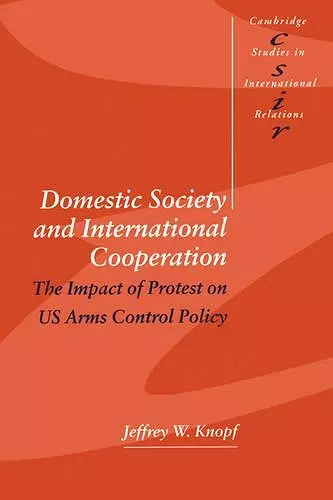Domestic Society and International Cooperation
The Impact of Protest on US Arms Control Policy
Format:Paperback
Publisher:Cambridge University Press
Published:13th May '98
Currently unavailable, and unfortunately no date known when it will be back
This paperback is available in another edition too:
- Hardback£90.00(9780521622400)

This book shows how peace movements affected US decisions to enter nuclear arms control talks during the Cold War.
In this book, Jeffrey Knopf investigates domestic sources of state preferences about whether to seek cooperation with other countries on security issues. He does so by examining whether public protest against nuclear weapons influenced US decisions to enter strategic arms talks. The analysis builds on the domestic structure approach to explaining foreign policy, using it as the starting point to develop a new framework with which to trace the influence of societal actors. The book's finding that protest had a major impact suggests that prevailing conceptions of the relation between domestic politics and international cooperation need to be broadened. Existing approaches typically assume that state preferences are set by political leaders or powerful interests, thereby treating the rest of society only as a constraint on state action. In contrast, this book demonstrates that ordinary citizens can also serve as a direct stimulus to the development of a state interest in cooperation.
"...Knopf makes a truly significant contribution." David Skidmore, Political Science Quarterly
ISBN: 9780521626910
Dimensions: 229mm x 152mm x 18mm
Weight: 500g
312 pages